- Home
- Nathaniel Hawthorne
The Seven Vagabonds
The Seven Vagabonds Read online
THE SEVEN VAGABONDS.
Rambling on foot in the spring of my life and the summer of the year, I came one afternoon to a point which gave me the choice of three directions. Straight before me, the main road extended its dusty length to Boston; on the left a branch went towards the sea, and would have lengthened my journey a trifle, of twenty or thirty miles; while, by the right hand path, I might have gone over hills and lakes to Canada, visiting in my way, the celebrated town of Stamford. On a level spot of grass, at the foot of the guide post, appeared an object, which though locomotive on a different principle, reminded me of Gulliver’s portable mansion among the Brobdignags. It was a huge covered wagon, or, more properly, a small house on wheels, with a door on one side and a window shaded by green blinds on the other. Two horses, munching provender out of the baskets which muzzled them, were fastened near the vehicle: a delectable sound of music proceeded from the interior; and I immediately conjectured that this was some itinerant show, halting at the confluence of the roads to intercept such idle travellers as myself. A shower had long been climbing up the western sky, and now hung so blackly over my onward path that it was a point of wisdom to seek shelter here.
‘Halloo! Who stands guard here? Is the door-keeper asleep?’ cried I, approaching a ladder of two or three steps which was let down from the wagon.
The music ceased at my summons, and there appeared at the door, not the sort of figure that I had mentally assigned to the wandering show-man, but a most respectable old personage, whom I was sorry to have addressed in so free a style. He wore a snuff-colored coat and small clothes, with white top boots, and exhibited the mild dignity of aspect and manner which may often be noticed in aged schoolmasters, and sometimes in deacons, selectmen, or other potentates of that kind. A small piece of silver was my passport within his premises, where I found only one other person, hereafter to be described.
‘This is a dull day for business,’ said the old gentleman, as he ushered me in; ‘but I merely tarry here to refresh the cattle, being bound for the campmeeting at Stamford.’
Perhaps the movable scene of this narrative is still peregrinating New England, and may enable the reader to test the accuracy of my description. The spectacle, for I will not use the unworthy term of puppet-show, consisted of a multitude of little people assembled on a miniature stage. Among them were artisans of every kind, in the attitudes of their toil, and a group of fair ladies and gay gentlemen standing ready for the dance; a company of foot soldiers formed a line across the stage, looking stern, grim, and terrible enough, to make it a pleasant consideration that they were but three inches high; and conspicuous above the whole was seen a Merry Andrew, in the pointed cap and motley coat of his profession. All the inhabitants of this mimic world were motionless, like the figures in a picture, or like that people who one moment were alive in the midst of their business and delights, and the next were transformed to statues, preserving an eternal semblance of labor that was ended, and pleasure that could be felt no more. Anon, however, the old gentleman turned the handle of a barrel organ, the first note of which produced a most enlivening effect upon the figures, and awoke them all to their proper occupations and amusements. By the self-same impulse the tailor plied his needle, the blacksmith’s hammer descended upon the anvil, and the dancers whirled away on feathery tiptoes; the company of soldiers broke into platoons, retreated from the stage, and were succeeded by a troop of horse, who came prancing onward with such a sound of trumpets and trampling of hoofs, as might have startled Don Quixote himself; while an old toper, of inveterate ill-habits, uplifted his black bottle and took off a hearty swig. Meantime the Merry Andrew began to caper and turn somersets, shaking his sides, nodding his head, and winking his eyes in as life-like a manner as if he were ridiculing the nonsense of all human affairs, and making fun of the whole multitude beneath him. At length the old magician (for I compared the show-man to Prospero, entertaining his guests with a masque of shadows,) paused that I might give utterance to my wonder.
‘What an admirable piece of work is this!’ exclaimed I, lifting up my hands in astonishment.
Indeed, I liked the spectacle, and was tickled with the old man’s gravity as he presided at it, for I had none of that foolish wisdom which reproves every occupation that is not useful in this world of vanities. If there be a faculty which I possess more perfectly than most men, it is that of throwing myself mentally into situations foreign to my own, and detecting, with a cheerful eye, the desirable circumstances of each. I could have envied the life of this grey headed showman, spent as it had been in a course of safe and pleasurable adventure, in driving his huge vehicle sometimes through the sands of Cape Cod, and sometimes over the rough forest roads of the north and east, and halting now on the green before a village meeting-house, and now in a paved square of the metropolis. How often must his heart have been gladdened by the delight of children, as they viewed these animated figures! or his pride indulged, by haranguing learnedly to grown men on the mechanical powers which produced such wonderful effects! or his gallantry brought into play (for this is an attribute which such grave men do not lack,) by the visits of pretty maidens! And then with how fresh a feeling must he return, at intervals, to his own peculiar home!
‘I would I were assured of as happy a life as his,’ thought I.
Though the show-man’s wagon might have accommodated fifteen or twenty spectators, it now contained only himself and me, and a third person at whom I threw a glance on entering. He was a neat and trim young man of two or three and twenty; his drab hat, and green frock coat with velvet collar, were smart, though no longer new; while a pair of green spectacles, that seemed needless to his brisk little eyes, gave him something of a scholar-like and literary air. After allowing me a sufficient time to inspect the puppets, he advanced with a bow, and drew my attention to some books in a corner of the wagon. These he forthwith began to extol, with an amazing volubility of well-sounding words, and an ingenuity of praise that won him my heart, as being myself one of the most merciful of critics. Indeed his stock required some considerable powers of commendation in the salesman; there were several ancient friends of mine, the novels of those happy days when my affections wavered between the Scottish Chiefs and Thomas Thumb; besides a few of later date, whose merits had not been acknowledged by the public. I was glad to find that dear little venerable volume, the New England Primer, looking as antique as ever, though in its thousandth new edition; a bundle of superannuated gilt picture books made such a child of me, that, partly for the glittering covers, and partly for the fairy tales within, I bought the whole; and an assortment of ballads and popular theatrical songs drew largely on my purse. To balance these expenditures, I meddled neither with sermons, nor science, nor morality, though volumes of each were there; nor with a Life of Franklin in the coarsest of paper, but so showily bound that it was emblematical of the Doctor himself, in the court dress which he refused to wear at Pairs; nor with Webster’s spelling book, nor some of Byron’s minor poems, nor half a dozen little testaments at twenty-five cents each.
Thus far the collection might have been swept from some great book store, or picked up at an evening auction room; but there was one small blue covered pamphlet, which the pedler handed me with so peculiar an air, that I purchased it immediately at his own price; and then, for the first time, the thought struck me, that I had spoken face to face with the veritable author of a printed book. The literary man now evinced a great kindness for me, and I ventured to inquire which way he was travelling.
‘Oh,’ said he, ‘I keep company with this old gentleman here, and we are moving now towards the camp-meeting at Stamford.’
He then explained to me, that for the present season he had rented a corner of
the wagon as a book store, which, as he wittily observed, was a true Circulating Library, since there were few parts of the country where it had not gone its rounds. I approved of the plan exceedingly, and began to sum up within my mind the many uncommon felicities in the life of a book pedler, especially when his character resembled that of the individual before me. At a high rate was to be reckoned the daily and hourly enjoyment of such interviews as the present, in which he seized upon the admiration of a passing stranger, and made him aware that a man of literary taste, and even of literary achievement, was travelling the country in a show-man’s wagon. A more valuable, yet not infrequent triumph, might be won in his conversations with some elderly clergyman, long vegetating in a rocky, woody, watery back settlement of New England, who as he recruited his library from the pedler’s stock of sermons, would exhort him to seek a college education and become the first scholar in his class. Sweeter and prouder yet would be his sensations, when, talking poetry while he sold spelling books, he should charm the mind, and haply touch the heart of a fair country school mistress, herself an unhonored poetess, a wearer of blue stockings which none but himself took pains to look at. But the scene of his completest glory would be when the wagon had halted for the night, and his stock of books was transferred to some crowded bar room. Then would he recommend to the multifarious company, whether traveller from the city, or teamster from the hills, or neighboring squire, or the landlord himself, or his loutish hostler, works suited to each particular taste and capacity; proving, all the while, by acute criticism and profound remark, that the lore in his books was even exceeded by that in his brain.
Thus happily would he traverse the land; sometimes a herald before the march of Mind; sometimes walking arm in arm with awful Literature; and reaping everywhere a harvest of real and sensible popularity, which the secluded book worms, by whose toil he lived, could never hope for.
‘If ever I meddle with literature,’ thought I, fixing myself in adamantine resolution, ‘it shall be as a travelling bookseller.’
Though it was still mid-afternoon, the air had now grown dark about us, and a few drops of rain came down upon the roof of our vehicle, pattering like the feet of birds that had flown thither to rest. A sound of pleasant voices made us listen, and there soon appeared halfway up the ladder the pretty person of a young damsel, whose rosy face was so cheerful, that even amid the gloomy light it seemed as if the sun-beams were peeping under her bonnet. We next saw the dark and handsome features of a young man, who with easier gallantry than might have been expected in the heart of Yankee-land, was assisting her into the wagon. It became immediately evident to us, when the two strangers stood within the door, that they were of a profession kindred to those of my companions; and I was delighted with the more than hospitable, the even paternal kindness, of the old show-man’s manner, as he welcomed them; while the man of literature hastened to lead the merry-eyed girl to a seat on the long bench.
‘You are housed but just in time, my young friends,’ said the master of the wagon. ‘The sky would have been down upon you within five minutes.’
The young man’s reply marked him as a foreigner, not by any variation from the idiom and accent of good English, but because he spoke with more caution and accuracy, than if perfectly familiar with the language.
‘We knew that a shower was hanging over us,’ said he, ‘and consulted whether it were best to enter the house on the top of yonder hill, but seeing your wagon in the road--’
‘We agreed to come hither,’ interrupted the girl, with a smile, ‘because we should be more at home in a wandering house like this.’
I, meanwhile, with many a wild and undetermined fantasy, was narrowly inspecting these two doves that had flown into our ark. The young man tall, agile, and athletic, wore a mass of black shining curls clustering round a dark and vivacious countenance, which, if it had not greater expression, was at least more active, and attracted readier notice, than the quiet faces of our countrymen. At his first appearance, he had been laden with a neat mahogany box, of about two feet square, but very light in proportion to its size, which he had immediately unstrapped from his shoulders and deposited on the floor of the wagon.
The girl had nearly as fair a complexion as our own beauties, and a brighter one than most of them; the lightness of her figure, which seemed calculated to traverse the whole world without weariness, suited well with the glowing cheerfulness of her face; and her gay attire combining the rainbow hues of crimson, green, and a deep orange, was as proper to her lightsome aspect as if she had been born in it. This gay stranger was appropriately burdened with that mirth-inspiring instrument, the fiddle, which her companion took from her hands, and shortly began the process of tuning. Neither of us--the previous company of the wagon--needed to inquire their trade; for this could be no mystery to frequenters of brigade musters, ordinations, cattle shows, commencements, and other festal meetings in our sober land; and there is a dear friend of mine, who will smile when this page recalls to his memory a chivalrous deed performed by us, in rescuing the show box of such a couple from a mob of great double-fisted countrymen.
‘Come,’ said I to the damsel of gay attire, ‘shall we visit all the wonders of the world together?’
She understood the metaphor at once; though indeed it would not much have troubled me, if she had assented to the literal meaning of my words. The mahogany box was placed in a proper position, and I peeped in through its small round magnifying window, while the girl sat by my side, and gave short descriptive sketches, as one after another the pictures were unfolded to my view. We visited together, at least our imaginations did, full many a famous city, in the streets of which I had long yearned to tread; once, I remember, we were in the harbor of Barcelona, gazing townwards; next, she bore me through the air to Sicily, and bade me look up at blazing Ætna; then we took wing to Venice, and sat in a gondola beneath the arch of the Rialto; and anon she set me down among the thronged spectators at the coronation of Napoleon. But there was one scene, its locality she could not tell, which charmed my attention longer than all those gorgeous palaces and churches, because the fancy haunted me, that I myself, the preceding summer, had beheld just such an humble meeting-house, in just such a pine-surrounded nook, among our own green mountains. All these pictures were tolerably executed, though far inferior to the girl’s touches of description; nor was it easy to comprehend, how in so few sentences, and these, as I supposed, in a language foreign to her, she contrived to present an airy copy of each varied scene. When we had travelled through the vast extent of the mahogany box, I looked into my guide’s face.
‘Where are you going, my pretty maid?’ inquired I, in the words of an old song.
‘Ah,’ said the gay damsel, ‘you might as well ask where the summer wind is going. We are wanderers here, and there, and every where. Wherever there is mirth, our merry hearts are drawn to it. Today, indeed, the people have told us of a great frolic and festival in these parts; so perhaps we may be needed at what you call the camp meeting at Stamford.’
Then in my happy youth, and while her pleasant voice yet sounded in my ears, I sighed; for none but myself, I thought, should have been her companion in a life which seemed to realize my own wild fancies, cherished all through visionary boyhood to that hour. To these two strangers, the world was in its golden age, not that indeed it was less dark and sad than ever, but because its weariness and sorrow had no community with their ethereal nature. Wherever they might appear in their pilgrimage of bliss, Youth would echo back their gladness, care-stricken Maturity would rest a moment from its toil, and Age, tottering among the graves, would smile in withered joy for their sakes. The lonely cot, the narrow and gloomy street, the sombre shade, would catch a passing gleam like that now shining on ourselves, as these bright spirits wandered by. Blessed pair, whose happy home was throughout all the earth! I looked at my shoulders, and thought them broad enough to sustain those pictured towns and mountains; mine, too, was an elastic foot, as tireless as the wing
of the bird of Paradise; mine was then an untroubled heart, that would have gone singing on its delightful way.
‘Oh, maiden!’ said I aloud, ‘why did you not come hither alone?’
While the merry girl and myself were busy with the show-box, the unceasing rain had driven another wayfarer into the wagon. He seemed pretty nearly of the old show-man’s age, but much smaller, leaner, and more withered than he, and less respectably clad in a patched suit of gray; withal, he had a thin, shrewd countenance, and a pair of diminutive gray eyes, which peeped rather too keenly out of their puckered sockets. This old fellow had been joking with the show-man, in a manner which intimated previous acquaintance; but perceiving that the damsel and I had terminated our affairs, he drew forth a folded document and presented it to me. As I had anticipated, it proved to be a circular, written in a very fair and legible hand, and signed by several distinguished gentlemen whom I had never heard of, stating that the bearer had encountered every variety of misfortune, and recommending him to the notice of all charitable people. Previous disbursements had left me no more than a five dollar bill, out of which, however, I offered to make the beggar a donation, provided he would give me change for it. The object of my beneficence looked keenly in my face, and discerned that I had none of that abominable spirit, characteristic though it be, of a full-blooded Yankee, which takes pleasure in detecting every little harmless piece of knavery.
‘Why, perhaps,’ said the ragged old mendicant, ‘if the bank is in good standing, I can’t say but I may have enough about me to change your bill.’
‘It is a bill of the Suffolk Bank,’ said I, ‘and better than the specie.’
As the beggar had nothing to object, he now produced a small buff leather bag, tied up carefully with a shoe-string. When this was opened, there appeared a very comfortable treasure of silver coins, of all sorts and sizes, and I even fancied that I saw, gleaming among them, the golden plumage of that rare bird in our currency, the American Eagle. In this precious heap was my bank note deposited, the rate of exchange being considerably against me. His wants being thus relieved, the destitute man pulled out of his pocket an old pack of greasy cards, which had probably contributed to fill the buff leather bag, in more ways than one.

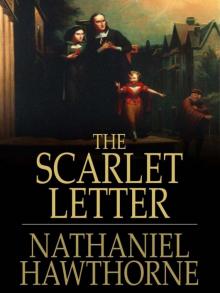 The Scarlet Letter
The Scarlet Letter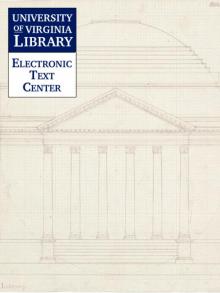 Young Goodman Brown : By Nathaniel Hawthorne - Illustrated
Young Goodman Brown : By Nathaniel Hawthorne - Illustrated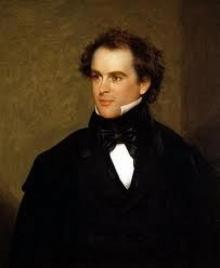 The Birthmark
The Birthmark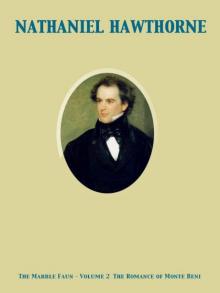 The Marble Faun; Or, The Romance of Monte Beni - Volume 1
The Marble Faun; Or, The Romance of Monte Beni - Volume 1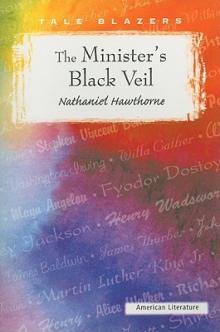 The Minister's Black Veil
The Minister's Black Veil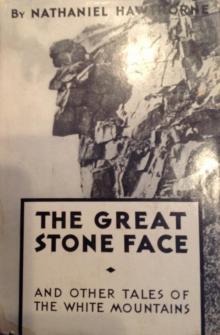 The Great Stone Face, and Other Tales of the White Mountains
The Great Stone Face, and Other Tales of the White Mountains The House of the Seven Gables
The House of the Seven Gables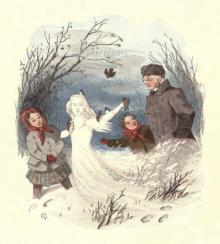 The Snow Image
The Snow Image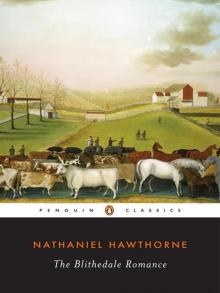 The Blithedale Romance
The Blithedale Romance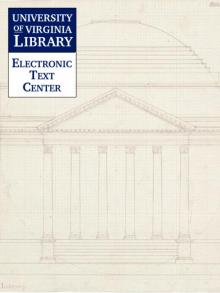 Rappaccini's Daughter: By Nathaniel Hawthorne - Illustrated
Rappaccini's Daughter: By Nathaniel Hawthorne - Illustrated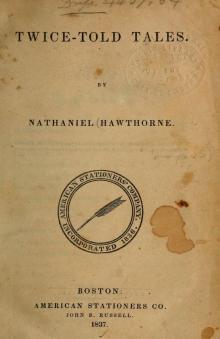 Twice-Told Tales
Twice-Told Tales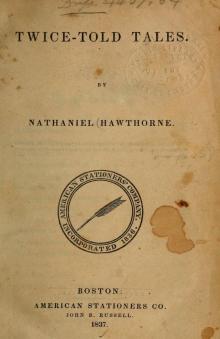 Twice Told Tales
Twice Told Tales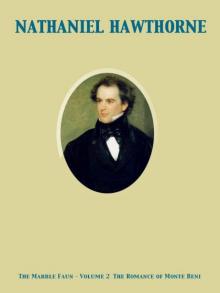 The Marble Faun; Or, The Romance of Monte Beni - Volume 2
The Marble Faun; Or, The Romance of Monte Beni - Volume 2_preview.jpg) Footprints on the Sea-Shore (From Twice Told Tales)
Footprints on the Sea-Shore (From Twice Told Tales)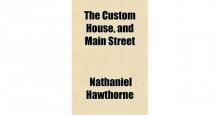 Main Street
Main Street_preview.jpg) The Seven Vagabonds (From Twice Told Tales)
The Seven Vagabonds (From Twice Told Tales) Fanshawe
Fanshawe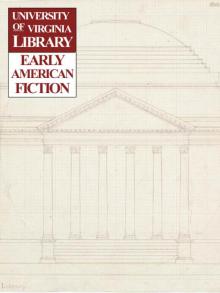 Chippings with a Chisel
Chippings with a Chisel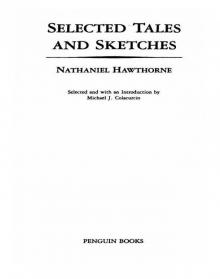 Selected Tales and Sketches
Selected Tales and Sketches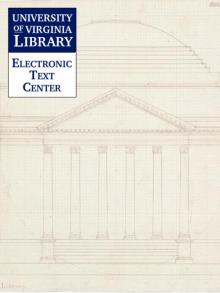 Young Goodman Brown
Young Goodman Brown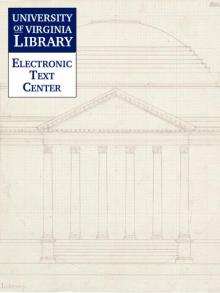 Roger Malvin's Burial
Roger Malvin's Burial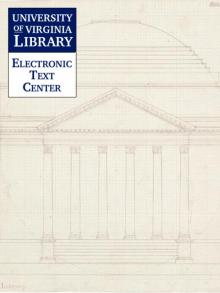 The Prophetic Pictures
The Prophetic Pictures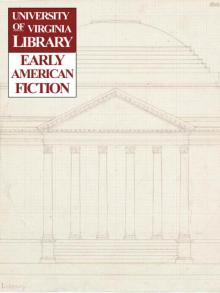 The Village Uncle
The Village Uncle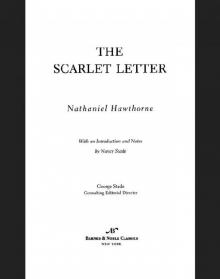 Scarlet Letter (Barnes & Noble Classics Series)
Scarlet Letter (Barnes & Noble Classics Series)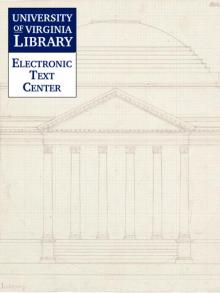 The Procession of Life
The Procession of Life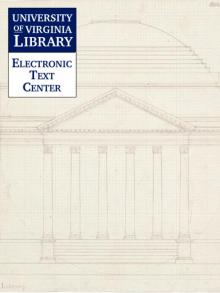 Drowne's Wooden Image
Drowne's Wooden Image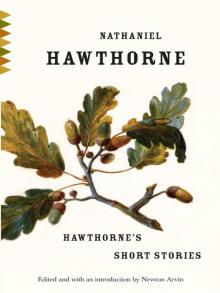 Hawthorne's Short Stories
Hawthorne's Short Stories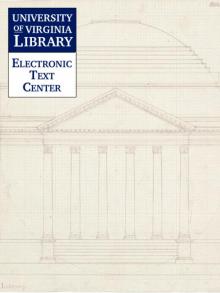 My Kinsman, Major Molineux
My Kinsman, Major Molineux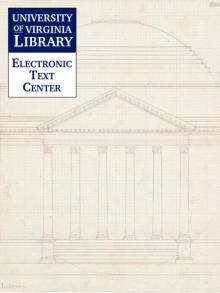 Legends of the Province House
Legends of the Province House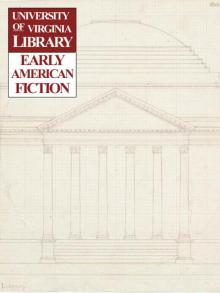 Foot-Prints on the Sea-Shore
Foot-Prints on the Sea-Shore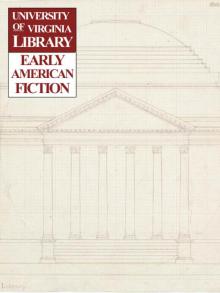 The Haunted Quack
The Haunted Quack Tanglewood Tales
Tanglewood Tales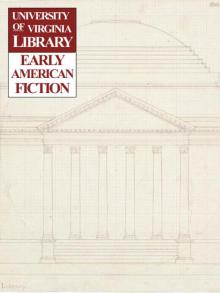 The Seven Vagabonds
The Seven Vagabonds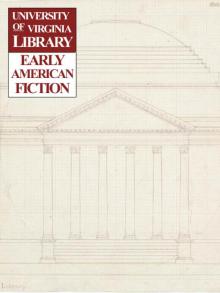 Mosses from an Old Manse, Volume 2
Mosses from an Old Manse, Volume 2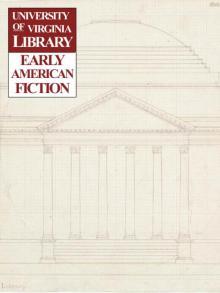 The Canterbury Pilgrims
The Canterbury Pilgrims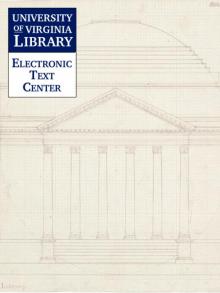 Wakefield
Wakefield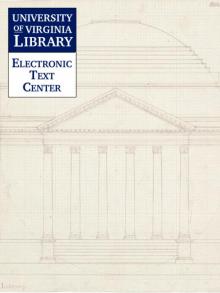 The Gray Champion
The Gray Champion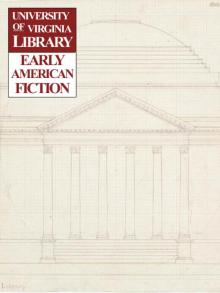 The White Old Maid
The White Old Maid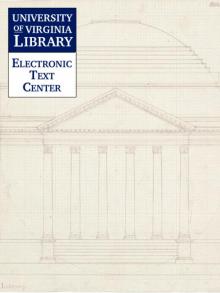 The Snow-Image: A Childish Miracle
The Snow-Image: A Childish Miracle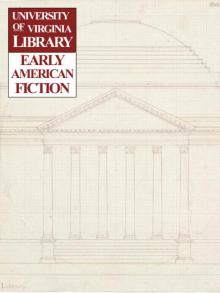 The Gentle Boy
The Gentle Boy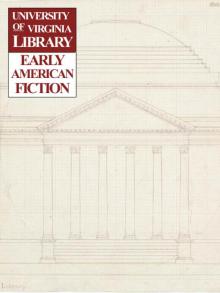 Mr. Higginbotham's Catastrophe
Mr. Higginbotham's Catastrophe![The Threefold Destiny: A Fairy Legend, by Ashley Allen Royce [pseud.] Read online](http://i1.bookreadfree.com/i2/04/10/the_threefold_destiny_a_fairy_legend_by_ashley_allen_royce_pseud__preview.jpg) The Threefold Destiny: A Fairy Legend, by Ashley Allen Royce [pseud.]
The Threefold Destiny: A Fairy Legend, by Ashley Allen Royce [pseud.]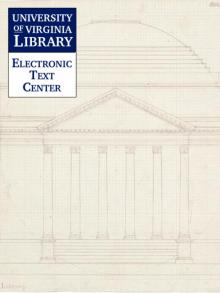 Lady Eleanore`s Mantle
Lady Eleanore`s Mantle The Great Carbuncle
The Great Carbuncle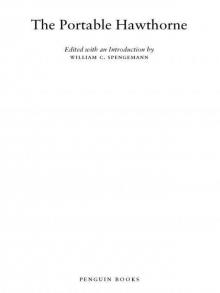 The Portable Hawthorne (Penguin Classics)
The Portable Hawthorne (Penguin Classics)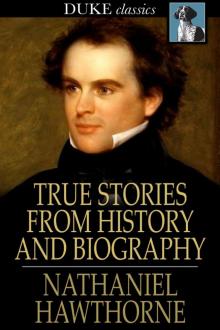 True Stories from History and Biography
True Stories from History and Biography